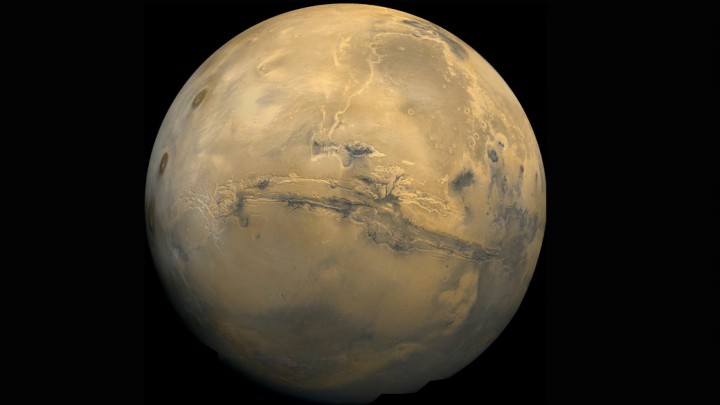TORONTO – In another attempt to discover whether or not life once existed, or even could still exist on Mars, another promising breakthrough has been made.

New research from a team of international scientists found traces of methane within Martian meteorites that were once delivered to Earth after something impacted the red planet.
Here on our Earth, more than 90 per cent of methane is generated by living organisms. While not indicative that life actually exists on the red planet, the finding does suggest that it could be used as a food source by primitive life beneath the Martian surface. Even here at home, microbes are able to do that.
READ MORE: Buzz Aldrin on why Mars is our future and why we should leave people there
“One of the most exciting developments in the exploration of Mars has been the suggestion of methane in the Martian atmosphere,” said University of Aberdeen professor John Parnell, who directed the research. “Recent and forthcoming missions by NASA and the European Space Agency, respectively, are looking at this, however, it is so far unclear where the methane comes from, and even whether it is really there. However, our research provides a strong indication that rocks on Mars contain a large reservoir of methane.”
Examining six meteorites, the researchers — which included those from Brock University and the University of Western Ontario — found gases in the same proportion as that exists on Mars. Crushing the rocks, and using a mass spectrometer to study the gases that were released, the researchers found that all six contained methane.
Methane was first discovered on Mars by the European Space Agency’s Mars Express in 2004. In 2014, a scientists found a rise in methane around the Curiosity rover as well as other organic molecules.
“Even if Martian methane does not directly feed microbes, it may signal the presence of a warm, wet, chemically reactive environment where life could thrive,” said co-author of the study Sean McMahon of Yale University.
- Enter at your own risk: New home security camera aims paintballs at intruders
- Boston Dynamics unveils ‘creepy’ new fully electric humanoid robot
- Ontario First Nation calls for chemical plant to be shut down amid ‘dangerously high’ benzene levels
- Nova Scotia scraps spring bear hunt idea, public ‘very divided’ on issue




Comments